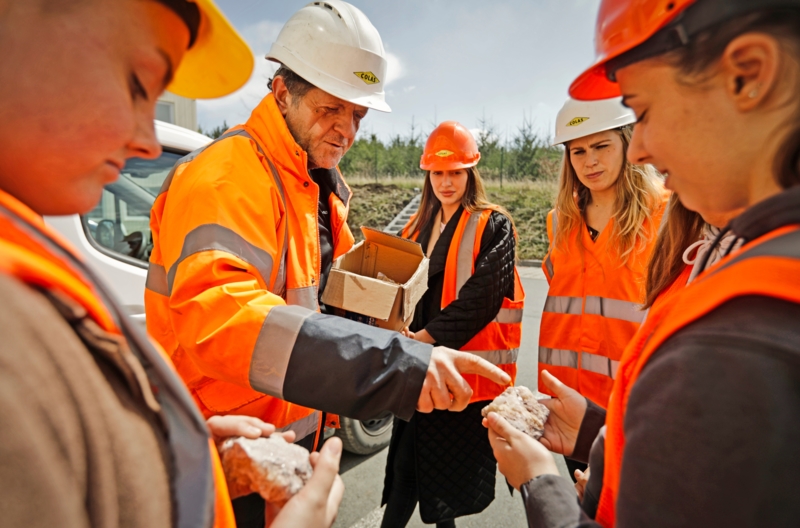Women in Construction
19th August 2022
Construction is not just for men
Although the division of work into purely male and female is becoming increasingly more distant from reality, it still remains in some professions. While, for example, women dominate among medical staff, the opposite is true on construction sites. According to the data collected by the Ministry of Industry and Trade, there is only one woman among ten employees in the construction sector on average. As far as the self-employed are concerned, the share of women in construction activities even falls to very small units of percents.
As noted by Karmen Barsegyan, contract manager at COLAS, it is definitely not about the nature of the work. "There is no longer as much need for brute physical strength on construction sites as there used to be. The difference, however, is in the approach. While men do not have to prove that they have what it takes to be a builder, there is a lot of prejudice about women. Not only the ones about 'work for real men'. The classic arguments include that women are not technically gifted, they are moody, quarrelsome and simply do not fit in with a male team," explains the experienced manager who has been in the building industry since she was 18.
Women in the building industry often have to cope with the increased demands of their colleagues. "Unlike their male colleagues, women in the position of construction managers first have to earn respect, show that they understand construction, that they simply have what it takes. And the same applies to managers in the building industry. In a predominantly male environment, they first have to win recognition and prove they master the job," explains graduated lawyer.
Supportive environment
More women in the building industry would, according to Karmen Barsegyan, only bring benefits. For example, women are usually not so focused on their own egos during negotiations, they are more communicative and can see compromise solutions where men are stubborn. Directly on the site, they tend to think ahead, plan several things at once and thus avoiding complications. COLAS is one of the companies that are aware of such advantages and women not only work here in administration, as is often the case in the building industry, but also as site managers and in the preparation of many large projects. They also try to make it easier for women to return to work after maternity leave by offering flexible working arrangements. The same is true in the case of remuneration: for the leading players in the field of road construction, what matters the most is expertise and a job well done - not a gender role burdened with prejudice.
COLAS is one of the companies that try to go down the path of education and raise awareness that the construction industry is not just for men. It attaches great importance to co-operation with schools and the passing-on of experience of women working in the industry. "It is like in sports, good examples simply pull", adds Karmen Barsegyan. An example of such a positive approach is the day-long event that COLAS organised at the end of April this year for students from four secondary schools specialised in construction engineering. About thirty-five girls heard the stories of two female colleagues who work as site managers at COLAS and they also took a tour of the quarry and tarmacadam plant in Čenkov. "The aim of such events is to encourage girls, to show them that the building industry is really not just for men, and that in our company, we take women as a natural part of a strong team," says Jana Kandusová, HR specialist at COLAS.


